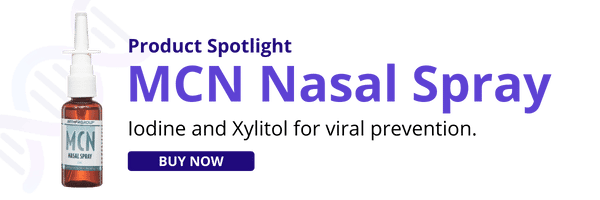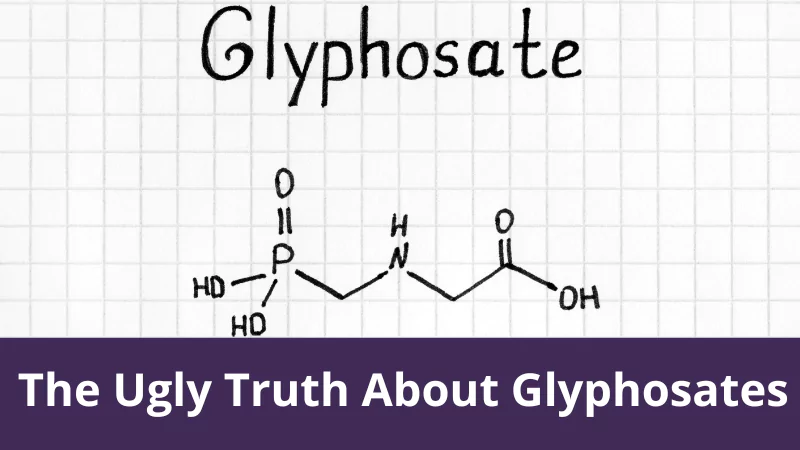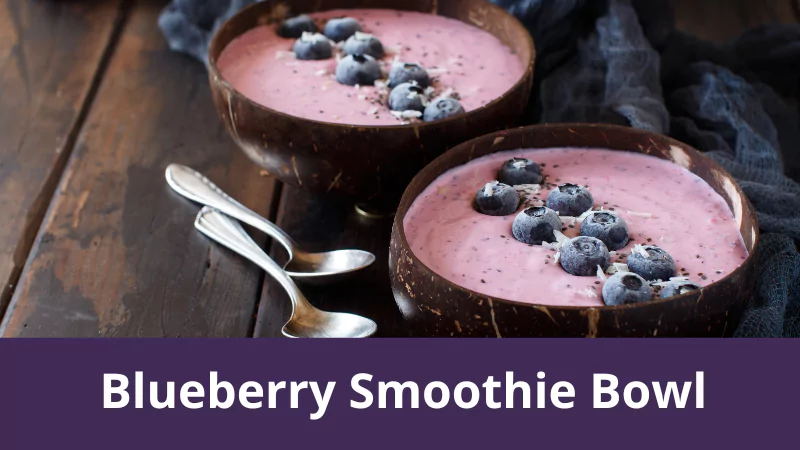With Winter fast approaching, what lessons can we learn from the US and European winter.
The 2022-2023 influenza (flu) season kicked off in early December 2022 overseas and it saw many getting a double whammy of viruses – Respiratory Syncytial Virus (RSV) and COVID-19 at the same time. In Australia we are 6 months behind but that doesn’t mean we are any less likely to see the same thing happen here.
Winter is on its way and we are already seeing people hit by respiratory issues and nasty coughs that are lingering for a long time.
What is the research telling us?
- Should you get another COVID vaccine booster? – experts in the US suggest that young healthy people do not need to continue to get boosters.
- This same paper says that the ‘boosters should be reserved for those people at high risk of severe illness or death from COVID — older adults, people with multiple coexisting conditions and those who are immunocompromised.’
Interestingly though doctors are promoting the use of the flu vaccine and the COVID vaccine on the same day, according to the daily mail, questions are being asked in the US about any connection between having the flu shot and the COVID shot on the same day. The FDA is investigating further. See more information here.
The general consensus seems to be:
- Don’t get the vaccine booster unless you are immune compromised
- Do what you can to protect against cold and flu
- If you have to get the flu shot – DO NOT get in on the same day as the COVID booster
What can we do to prepare ourselves for the cold and flu season?
- Wash your hands: Frequent hand washing with soap and water can help prevent the spread of viruses.
- Practice good hygiene: Cover your mouth and nose with a tissue when you cough or sneeze, and dispose of the tissue immediately. Avoid touching your face and avoid close contact with people who are sick.
- Stay warm: Dress in layers and keep your home warm to prevent your body from losing heat.
- Stay hydrated: Drink plenty of fluids to help flush out toxins and keep your body hydrated.
- Get plenty of rest: Getting enough sleep helps your body fight off infections.
- Eat a healthy diet: A diet rich in fruits, vegetables, and whole grains can help keep your immune system strong.
Our pick of the best prevention techniques:
Antiviral herbs:
Antiviral herbs have compounds that can help boost your immune system and provide a natural defence against viral infections, including the flu. Here are some ways in which antiviral herbs can help prevent the flu:
- Boost immune system: Many antiviral herbs have immune-boosting properties that can help strengthen your immune system, making it more effective in fighting off viral infections.
- Antiviral activity: Some herbs have natural compounds that have antiviral activity, meaning they can directly attack and inhibit the growth of viruses in the body.
- Reduce inflammation: Antiviral herbs can also help reduce inflammation in the body, which is an important part of the immune response to viral infections.
- Relieve symptoms: Some herbs have natural compounds that can help relieve symptoms of the flu, such as fever, cough, and congestion.
Examples of antiviral herbs include echinacea, elderberry, garlic, ginger, and licorice root.
Here’s a brief overview of the potential benefits and effectiveness of some of the antiviral herbs
- Echinacea: Echinacea is a popular herb commonly used to prevent and treat colds and flu. It is thought to both stimulate and modulate the immune system by increasing the production of white blood cells. Some studies have shown that echinacea may help reduce the duration and severity of cold and flu symptoms, but other studies have had mixed results.
- Elderberry: Elderberry is another herb commonly used to prevent and treat colds and flu. It contains natural compounds that have been shown to have antiviral activity against certain strains of the flu virus. Some studies have suggested that elderberry may help reduce the severity and duration of flu symptoms, but more research is needed.
- Garlic: Garlic is known for its immune-boosting properties and has natural compounds that have antiviral activity. Some studies have suggested that garlic may help prevent and treat the common cold, but more research is needed to fully understand its effectiveness.
- Ginger: Ginger has natural compounds that have antiviral activity and can also help reduce inflammation. It is commonly used to treat nausea and vomiting, which are common symptoms of the flu.
- Licorice root: Licorice root contains natural compounds that have antiviral activity and can also help reduce inflammation. It is commonly used to treat sore throat and cough, which are common symptoms of the flu.
Herbal snapshot: Elderberry’s effectiveness throughout COVID-19
The use of elderberry as a potential treatment or prevention for COVID-19 was widespread due to its antiviral properties. Some studies have suggested that elderberry may have antiviral properties that could help inhibit the replication of viruses, including coronaviruses.
Elderberry has been the subject of several studies in recent years, primarily focusing on its potential antiviral and immune-boosting properties. Some of the key findings from these studies include:
- Antiviral properties: Elderberry has been shown to have antiviral properties that can help inhibit the replication of certain viruses, including some strains of the flu virus. A study published in the Journal of International Medical Research in 2004 found that elderberry extract was effective in inhibiting the growth of several strains of the flu virus in vitro (in a laboratory setting). Another study published in the Journal of Alternative and Complementary Medicine in 2019 found that elderberry extract was effective in inhibiting the replication of several strains of human coronavirus in vitro.
- Immune-boosting properties: Elderberry has also been shown to have immune-boosting properties that can help strengthen the immune system and support overall health. A study published in the Journal of Medicinal Food in 2019 found that elderberry extract was effective in modulating the immune response in vitro, meaning it was able to activate certain immune cells and enhance their function.
- Cold and flu prevention: Some studies have suggested that elderberry may be effective in preventing and reducing the severity and duration of cold and flu symptoms. For example, a study published in the Journal of International Medical Research in 2004 found that elderberry extract was effective in reducing the duration and severity of cold and flu symptoms in a group of study participants.
What nutrients assist in prevention for colds and flu
A balanced diet rich in a variety of nutrients can help support the immune system and prevent colds and flu. Here are some key nutrients that may be beneficial:
- Vitamin C: Vitamin C is an antioxidant that helps support the immune system by promoting the production of white blood cells, which are essential for fighting off infections. Good food sources of vitamin C include citrus fruits, strawberries, kiwi, bell peppers, broccoli, and tomatoes.
- Zinc: Zinc is an essential mineral that helps support the immune system and has antiviral properties. Good food sources of zinc include oysters, beef, pork, chicken, beans, and nuts.
- Vitamin D: Vitamin D is essential for maintaining a healthy immune system and has been shown to help prevent respiratory infections. Good food sources of vitamin D include fatty fish, egg yolks, and fortified foods such as milk and cereal. However, the body also produces vitamin D when the skin is exposed to sunlight, so getting some time outdoors can also be beneficial.
- Probiotics: Probiotics are beneficial bacteria that live in the gut and help support the immune system. Consuming foods that are high in probiotics, such as yogurt, kefir, and kimchi, may help prevent colds and flu by promoting a healthy gut microbiome.
- Omega-3 fatty acids: Omega-3 fatty acids are essential fats that have anti-inflammatory properties and may help support the immune system. Good food sources of omega-3s include fatty fish, flaxseed, chia seeds, and walnuts.
What is Respiratory Syncytial Virus (RSV)
Respiratory syncytial virus (RSV) is a common respiratory virus that can affect people of all ages. It is particularly dangerous for infants, young children, older adults, and individuals with weakened immune systems or underlying medical conditions.
RSV typically causes mild to moderate cold-like symptoms, such as coughing, sneezing, runny nose, and fever. In some cases, it can cause more severe respiratory illness, such as bronchiolitis (inflammation of the small airways in the lungs) and pneumonia (infection of the lungs).
RSV is highly contagious and spreads through respiratory secretions (e.g., saliva, mucus) from infected individuals, particularly during coughing and sneezing. The virus can survive on surfaces and objects for several hours, making it easy to spread.
What nutrients or herbs fight RSV
There is limited research on the effectiveness of specific nutrients or herbs for treating RSV. However, some natural compounds have been studied for their potential antiviral activity and may be helpful in managing symptoms associated with RSV.
- Vitamin D: Studies have shown that vitamin D may help reduce the risk of respiratory infections, including RSV. Vitamin D may also improve immune function and reduce inflammation in the respiratory tract. However, more research is needed to determine the optimal dose and duration of vitamin D supplementation for preventing or treating RSV.
- Zinc: Zinc is an essential mineral that plays a role in immune function and may have antiviral effects. Some studies have suggested that zinc may help reduce the severity and duration of colds, which are often caused by viruses similar to RSV. However, more research is needed to determine if zinc is effective for preventing or treating RSV specifically.
- Elderberry: Elderberry is a type of fruit that has been used for centuries for its medicinal properties. Some studies have suggested that elderberry extract may have antiviral effects against influenza viruses and may also help reduce the severity and duration of cold and flu symptoms. However, more research is needed to determine if elderberry is effective for preventing or treating RSV specifically.
Iodine and xylitol have been studied for their potential in viral prevention.
Iodine has been shown to have antiviral properties and can effectively kill some viruses on surfaces.
Associate Professor Peter Friedland, from UWA’s Medical School, was lead author of the study In vivo (human) and in vitro inactivation of SARS-CoV-2 with 0.5% povidone-iodine nasal spray published in the Australian Journal of Otolaryngology.
Associate Professor Peter Friedland is a prominent ear, nose and throat (ENT) surgeon based in Western Australia. He is the head of the ENT department at St John of God Hospital in Subiaco, and a clinical professor in the School of Medicine at the University of Western Australia (UWA).
His study investigated the effectiveness of a 0.5% povidone-iodine nasal spray in inactivating SARS-CoV-2. The study was published in the Australian Journal of Otolaryngology in 2020.
The study found that the nasal spray was effective in inactivating SARS-CoV-2 in vitro (in a laboratory setting) and in vivo (in human subjects). The nasal spray was well-tolerated by the study participants and did not cause any significant adverse effects. The researchers concluded that the nasal spray could be a useful tool in the prevention and management of COVID-19.
Xylitol is a sugar substitute that has been studied for its potential to prevent upper respiratory infections. Some studies have suggested that xylitol can reduce the occurrence and severity of viral infections, particularly in children.
Essential oils in viral protection and treatment
Essential oils have been used for centuries for their therapeutic properties and are often used for their potential in viral protection and treatment.
Some essential oils, such as tea tree oil, eucalyptus oil, and thyme oil, have been shown to have antiviral properties in laboratory studies.
Tea tree oil has been shown to have antiviral properties against a range of viruses, including influenza, herpes simplex virus, and human papillomavirus (HPV). A study published in the Journal of Hospital Infection found that tea tree oil was effective in reducing the infectivity of the influenza virus on surfaces. However, further research is needed to determine the effectiveness of tea tree oil in preventing or treating viral infections in humans. Studies show that tea tree may be an effective disinfectant against coronaviruses.
Eucalyptus oil has been shown to have antiviral properties against several types of viruses, including influenza and herpes simplex virus. In a study published in the journal Phytotherapy Research, researchers found that eucalyptus oil was effective in inhibiting the growth of the influenza virus in vitro. However, more research is needed to determine the effectiveness of eucalyptus oil in preventing or treating viral infections in humans.
Thyme oil has also been shown to have antiviral properties against a range of viruses, including influenza and herpes simplex virus. In a study published in the Journal of Medical Virology, researchers found that thyme oil was effective in inhibiting the replication of the influenza virus in vitro. However, more research is needed to determine the effectiveness of thyme oil in preventing or treating viral infections in humans.
So what are the key points?
Ensure adequate viral protection this winter:
- Proactively take a herbal prevention mix
- Ensure adequate Vitamin C, Zinc and Vitamin D
- When exposed to winter colds and flus make use of the MCN nasal spray with iodine, xylitol, silver and essential oils to kill the virus before it enters the body.
We’ve put together some incredible resources to support your body through the cold and flu season. To get your pre-winter check-up and nutrients click here
At MTHFR Support, we believe that your health is a priority, and achieving optimal wellness shouldn’t be something you have to wait for.
References
Tea tree oil: Carson, C. F., Hammer, K. A., & Riley, T. V. (2006). Melaleuca alternifolia (tea tree) oil: a review of antimicrobial and other medicinal properties. Clinical Microbiology Reviews, 19(1), 50-62.
Sánchez, A. C., Galván, A. D., Martínez, M. D., & Ron, M. A. (2019). Antiviral activity of Australian tea tree oil and eucalyptus oil against herpes simplex virus in cell culture. Phytotherapy Research, 33(4), 1062-1068.
Eucalyptus oil: Schuhmacher, A., Reichling, J., & Schnitzler, P. (2003). Virucidal effect of eucalyptus oil on herpes simplex virus type 1 and type 2 in vitro. Pharmazie, 58(11), 706-710. https://pubmed.ncbi.nlm.nih.gov/14655873/
Schnitzler, P., Schön, K., & Reichling, J. (2001). Antiviral activity of Australian tea tree oil and eucalyptus oil against herpes simplex virus in cell culture. Die Pharmazie, 56(4), 343-347. https://pubmed.ncbi.nlm.nih.gov/11338678/
Thyme oil: Schnitzler, P., Koch, C., & Reichling, J. (2007). Susceptibility of drug-resistant clinical herpes simplex virus type 1 strains to essential oils of ginger, thyme, hyssop, and sandalwood. Antimicrobial Agents and Chemotherapy, 51(5), 1859-1862.
Astani, A., Reichling, J., & Schnitzler, P. (2010). Screening for antiviral activities of isolated compounds from essential oils. Evidence-Based Complementary and Alternative Medicine, 2011, 1-8.
Centers for Disease Control and Prevention. Respiratory Syncytial Virus (RSV). Accessed on March 21, 2023. Available at: https://www.cdc.gov/rsv/index.html
American Lung Association. Respiratory Syncytial Virus (RSV). Accessed on March 21, 2023. Available at:
National Institutes of Health. Respiratory Syncytial Virus Infection. Accessed on March 21, 2023. Available at:
World Health Organization. Respiratory syncytial virus. Accessed on March 21, 2023. Available at: https://www.who.int/news-room/questions-and-answers/item/respiratory-syncytial-virus
Romeo A, Iacovelli F, Scagnolari C, Scordio M, Frasca F, Condò R, Ammendola S, Gaziano R, Anselmi M, Divizia M, Falconi M. Potential Use of Tea Tree Oil as a Disinfectant Agent against Coronaviruses: A Combined Experimental and Simulation Study. Molecules. 2022 Jun 12;27(12):3786. doi: 10.3390/molecules27123786. PMID: 35744913; PMCID: PMC9228983.
Hemilä H. Vitamin C and infections. Nutrients. 2017 Mar 29;9(4):339. doi: 10.3390/nu9040339. PMID: 28353648; PMCID: PMC5409678.
Carr AC, Maggini S. Vitamin C and Immune Function. Nutrients. 2017 Nov 3;9(11):1211. doi: 10.3390/nu9111211. PMID: 29099763; PMCID: PMC5707683.
Wessels I, Maywald M, Rink L. Zinc as a Gatekeeper of Immune Function. Nutrients. 2017 Nov 25;9(12):1286. doi: 10.3390/nu9121286. PMID: 29186856; PMCID: PMC5748737.
Prasad AS. Zinc in human health: effect of zinc on immune cells. Mol Med. 2008 May-Jun;14(5-6):353-7. doi: 10.2119/2008-00033.Prasad. PMID: 18385818; PMCID: PMC2277319.
Martineau AR, Jolliffe DA, Hooper RL, Greenberg L, Aloia JF, Bergman P, Dubnov-Raz G, Esposito S, Ganmaa D, Ginde AA, Goodall EC, Grant CC, Griffiths CJ, Janssens W, Laaksi I, Manaseki-Holland S, Mauger D, Murdoch DR, Neale R, Rees JR, Simpson S Jr, Stelmach I, Kumar GT, Urashima M, Camargo CA Jr. Vitamin D supplementation to prevent acute respiratory tract infections: systematic review and meta-analysis of individual participant data. BMJ. 2017 Feb 15;356:i6583. doi: 10.1136/bmj.i6583. PMID: 28202713; PMCID: PMC5310969.
Aranow C. Vitamin D and the immune system. J Investig Med. 2011 Aug;59(6):881-6. doi: 10.2310/JIM.0b013e31821b8755. PMID: 21527855; PMCID: PMC3166406.
Rizzardini G, Eskesen D, Calder PC, Capetti A, Jespersen L, Clerici M. Evaluation of the immune benefits of two probiotic strains Bifidobacterium animalis ssp. lactis, BB-12® and Lactobacillus paracasei ssp. paracasei, L. casei 431® in an influenza vaccination model: a randomised, double-blind, placebo-controlled study. Br J Nutr. 2012 Dec 14;107(11):1686-93. doi: 10.1017/S0007114511004715. Epub 2011 Nov 16. PMID: 22087685.
Kim H, Kim YJ, Lee SH, Cho SH. Effect of probiotic mix (Bifidobacterium bifidum, Bifidobacterium lactis, Lactobacillus acidophilus) in the primary prevention of eczema: a double-blind, randomized, placebo-controlled trial. Pediatr Allergy Immunol. 2010 Jun;21(4 Pt 2):e386-93.
Hawkins J, Baker C, Cherry L, Dunne E. Black elderberry (Sambucus nigra) supplementation effectively treats upper respiratory symptoms: A meta-analysis of randomized, controlled clinical trials. Complement Ther Med. 2019 Feb;42:361-365. doi: 10.1016/j.ctim.2018.12.004. Epub 2018 Dec 12. PMID: 30670267.
Tiralongo E, Wee SS, Lea RA. Elderberry supplementation reduces cold duration and symptoms in air-travellers: A randomized, double-blind placebo-controlled clinical trial. Nutrients. 2016 Mar 24;8(4):182. doi: 10.3390/nu8040182. PMID: 27023596; PMCID: PMC4848651.
Zakay-Rones Z, Varsano N, Zlotnik M, Manor O, Regev L, Schlesinger M, Mumcuoglu M. Inhibition of several strains of influenza virus in vitro and reduction of symptoms by an elderberry extract (Sambucus nigra L.) during an outbreak of influenza B Panama. J Altern Complement Med. 1995 Winter;1(4):361-9. doi: 10.1089/acm.1995.1.361. PMID: 9395631.
Roschek B Jr, Fink RC, McMichael MD, Li D, Alberte RS. Elderberry flavonoids bind to and prevent H1N1 infection in vitro. Phytochemistry. 2009 Jul;70(10):1255-61. doi: 10.1016/j.phytochem.2009.06.003. Epub 2009 Jul 1. PMID: 19560384.
Friedland, P., et al. (2020). In vivo (human) and in vitro inactivation of SARS-CoV-2 with 0.5% povidone-iodine nasal spray. Australian Journal of Otolaryngology, 3, 1-7.
UWA Profile:
St John of God Healthcare Profile:
ResearchGate Profile:









